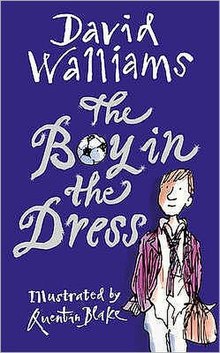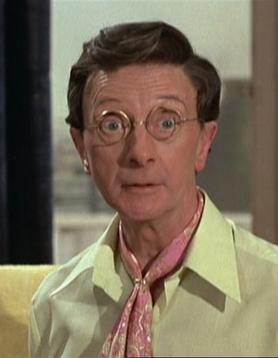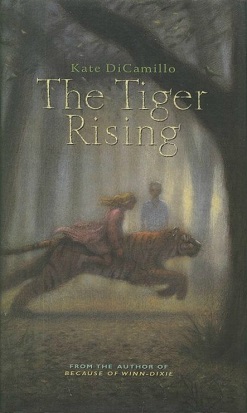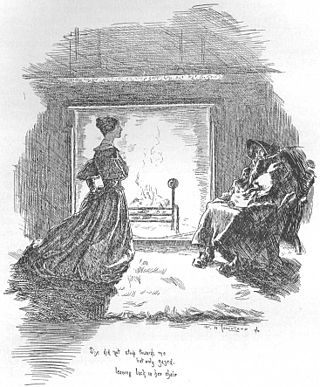Plot
The story follows a 12-year-old boy named Dennis, who lives in an ordinary house in an ordinary street in an ordinary town with his 14-year-old brother John. The boys remain with their father (referred to only as Dad), who resorts to comfort eating after his wife leaves, with Dennis and John driven apart. Dennis is talented in football and is one of the best on his team. However, he deeply misses his mother, who left their family about five years ago, and finds comfort remembering his mother's yellow dress in an old picture. Dennis sees the same dress on the cover of a Vogue magazine and buys a copy from Raj, the local shop owner. But when Dad finds the magazine, he is furious and forces Dennis to throw it away, while John teases him by calling him "Denise". At school that day, Dennis is given detention for kicking a football through an office window. While in detention, he talks to a girl named Lisa James, said to be the prettiest and most fashionable girl in the school. Lisa invites him over to her house the next day, showing Dennis her collection of Vogue magazines and dressing him up in girls' clothing. The two decide to go out in public, with Dennis in an electric blue dress, under the alter ego of "Denise", a French exchange student who speaks very little English. They go to Raj's corner shop. Raj does not recognise Dennis, believing he is Denise. Later on, they meet a friend of Lisa's named Mac, and he is so impressed that he asks Denise on a date, not knowing that it was actually Dennis. Following their success in fooling Raj and Mac, Dennis goes to school with Lisa as Denise.
In French class, the teacher starts speaking to Dennis in French (which he does not understand), and he ends up criticizing her French accent as a last resort, upsetting her in the progress. At breaktime, Dennis starts talking to Mac, which upsets his girlfriend, so she ends up trying to fight him, and his disguise falls off. Mr. Hawtrey, the headmaster, comes into the canteen and sees that Denise's wig is on the floor. Mr. Hawtrey becomes furious and expels him from the school for cross-dressing, forcing Dennis to miss out on playing in an important football match. Dad is enraged and sends Dennis to his room. Later, Dad sees him holding the half burned picture of Dennis, John, and his mother on the beach and demands he hand it over, which he reluctantly does. Darvesh, Dennis's best friend, comes over but is sent back home by Dad. After, Dennis spends the whole day holed up in his room hiding from his father, when Lisa climbs up to Dennis's window and promises him that she'll find a way to get him back in school.
Persuaded by Darvesh, Dennis attends the game anyway. Maudlin Street, the rival football team, has won the trophy for the past 3 years and holds a notorious reputation for playing rough and dirty. Dennis learns that without him— the "star striker"— around, Maudlin Street was able to get a huge lead with a score of 6-0, and defeat seems bound to happen. Right after the first half finishes, Lisa gets up, tells Mac she "needs a hand", and leaves with him. As the second half starts, Lisa opens the changing room door to reveal all the boys on the school's team— including Dennis— wearing all the dresses from her wardrobe. The game starts, and the school's team starts playing in dresses. Dennis immediately scores 2 goals and is "a hundred times happier than he had ever been". With Dennis playing in the team, the score increases from 6-0 to 6-6, and victory seems near— until one of the Maudlin Street players intentionally injures Dennis, leaving him lying on the ground in pain. Dennis' father appears, much to Dennis's surprise, and starts cheering Dennis on. The game ends with a win for the school's team, and everyone celebrates. Mr. Hawtrey is still adamant on having Dennis expelled, but Dennis's father steps up and defends him from Mr. Hawtrey.
Later on, Dennis returns the dress to Lisa and thanks her for "opening his eyes". For a moment, he contemplates confessing his profound affection for Lisa, but in the end, he doesn't and leaves it at "I'll tell you when I'm older". On the way home, Raj informs Dennis that Mr. Hawtrey's sister, Ms. Doris, rather than Mr. Hawtrey himself, now buys the Telegraph and adds that there is "something funny about her". Lisa and Dennis go to Raj's shop the next morning and find out that Ms. Doris is actually Mr. Hawtrey cross-dressing in a skirt. The two threaten to tell everyone about Mr. Hawtrey's cross-dressing habits, unless Dennis is readmitted to the school. Mr. Hawtrey gives in and agrees to reinstate Dennis.
At the end of the story, it's Christmas, and Darvesh and his mother come over to Denise's house. They ring the doorbell and Denise's dad opens the door and lets them both in, but only Darvesh goes through. Darvesh's mother, Jaspreet Kaur, flirts with Denise's dad, after which they kiss each other. They all spend Christmas together happily, having a great time. Dennis, his father, and his brother get over the pain of the loss of Dennis's mother, Dennis and Lisa stay good friends, and John starts to look out for his younger brother more.













